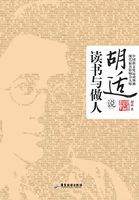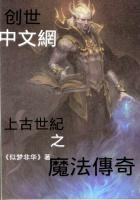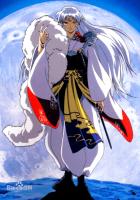It was eleven o'clock; Crailey had not come back, and Tom knew that his light-hearted friend would not return for many hours; and so, having no mind to read, and no belief that he could if he tried, he went out to walk the streets. He went down to the river first, and stood for a little while gazing at the ruins of the two warehouses, and that was like a man with a headache beating his skull against a wall. As he stood on the blackened wharf, he saw how the charred beams rose above him against the sky like a gallows, and it seemed to him that nothing could have been a better symbol, for here he had hanged his self-respect. "Reproach her!"
He, who had so displayed his imbecility before her! Had he been her father's best friend, he should have had too great a sense of shame to dare to speak to her after that night when her quiet intelligence had exhibited him to himself, and to all the world, as nought else than a fool--and a noisy one at that!
Suddenly a shudder convulsed him; he struck his open palm across his forehead and spoke aloud, while, from horizon to horizon, the night air grew thick with the whispered laughter of observing hobgoblins:
"And even if there had been no stairway, we could have slid down the hose- line!"
He retraced his steps, a tall, gray figure moving slowly through the blue darkness, and his lips formed the heart-sick shadow of a smile when he found that he had unconsciously turned into Carewe Street. Presently he came to a gap in a hedge, through which he had sometimes stolen to hear the sound of a harp and a girl's voice singing; but he did not enter there tonight, though he paused a moment, his head bowed on his breast.
There came a sound of voices; they seemed to be moving toward the hedge, toward the gap where he stood; one a man's eager, quick, but very musical; the other, a girl's, a rich and clear contralto that passed into Tom's soul like a psalm of rejoicing and like a scimitar of flame. He shivered, and moved away quickly, but not before the man's voice, somewhat louder for the moment, came distinctly from the other side of the hedge:
"After all," said the voice, with a ripple of laughter, "after all, weren't you a little hard on that poor Mr. Gray?"
Tom did not understand, but he knew the voice. It was that of Crailey Gray.
He heard the same voice again that night, and again stood unseen. Long after midnight he was still tramping the streets on his lonely rounds, when he chanced to pass the Rouen House, which hostelry bore, to the uninitiated eye, the appearance of having closed its doors upon all hospitalities for the night, in strict compliance with the law of the city fathers, yet a slender wand of bright light might be discovered underneath the street door of the bar-room.
>From within the merry retreat issued an uproar of shouting, raucous laughter and the pounding of glasses on tables, heralding all too plainly the hypocrisy of the landlord, and possibly that of the city fathers also.
Tom knew what company was gathered there: gamblers, truckmen, drunken farmers, men from the river steamers making riot while their boats lay at the wharf, with a motley gathering of good-for-nothings of the back- alleys, and tippling clerks from the Main Street stores. There came loud cries for a song, and, in answer, the voice of Crailey rose over the general din, somewhat hoarse, and never so musical when he sang as when he spoke, yet so touching in its dramatic tenderness that soon the noise fell away, and the roisterers sat quietly to listen. It was not the first time Ben Jonson's song had stilled a disreputable company.
"I sent thee late a rosy wreath, Not so much honoring thee, As giving it the hope that there It might not withered be."
Perhaps, just then, Vanrevel would have wished to hear him sing anything in the world rather than that, for on Crailey's lips it carried too much meaning tonight, after the voice in the garden. And Tom lingered no more near the betraying sliver of light beneath the door than he had by the gap in the hedge, but went steadily on his way.
Not far from the hotel he passed a small building brightly lighted and echoing with unusual clamors of industry: the office of the Rouen Journal.
The press was going, and Mr. Cummings's thin figure crossed and recrossed the windows, while his voice could be heard energetically bidding his as- sistants to "Look alive!" so that Tom imagined that something might have happened between the Nueces River and the Rio Grande; but he did not stop to ask the journalist, for he desired to behold the face of none of his friends until he had fought out some things within himself. So he strode on toward nowhere.
Day was breaking when Mr. Gray climbed the stairs to his room. There were two flights, the ascent of the first of which occupied about half an hour of Crailey's invaluable time; and the second might have taken more of it, or possibly consumed the greater part of the morning, had he received no assistance. But, as he reclined to meditate upon the first landing, another man entered the hallway from without, ascended quickly, and Crailey became pleasantly conscious that two strong hands had lifted him to his feet; and, presently, that he was being borne aloft upon the new- comer's back. It seemed quite a journey, yet the motion was soothing, so he made no effort to open his eyes, until he found himself gently deposited upon the couch in his own chamber, when he smiled amiably, and, looking up, discovered his partner standing over him.
Tom was very pale and there were deep, violet scrawls beneath his eyes.
For once in his life he bad come home later than Crailey.
"First time, you know," said Crailey, with difficulty. "You'll admit first time completely incapable? Often needed guiding hand, but never-- quite--before."
"Yes," said Tom, quietly, "it is the first time I ever saw you quite finished."
"Think I must be growing old and constitution refuses bear it.















